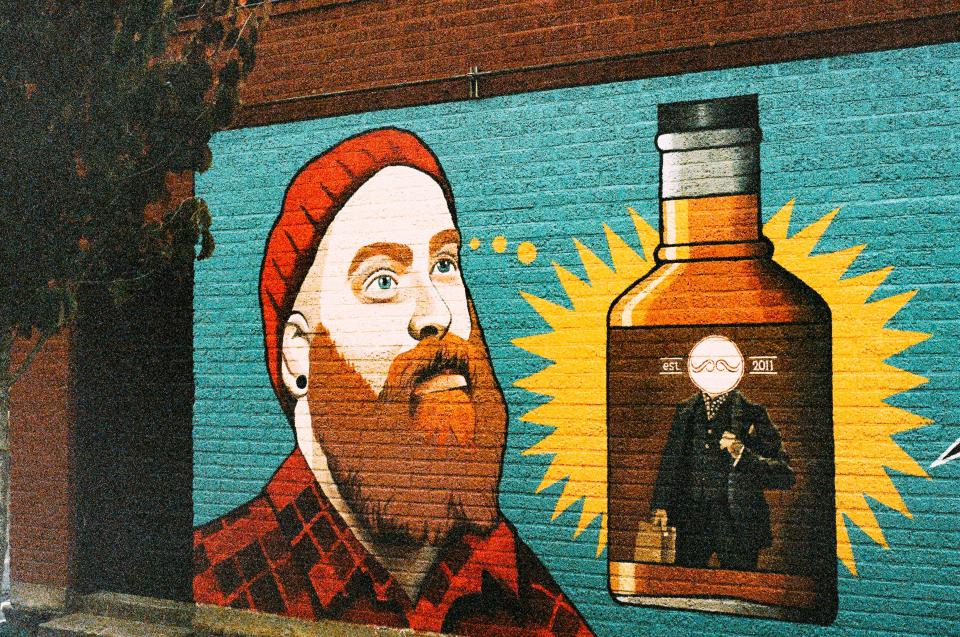Ask Whisky Foundation: should independent bottlings be called indie whiskies?
Uncategorized
If you’ve ever tried to introduce independent bottlings to a friend – even a friend that enjoys a dram or two – it can get a little bit complicated.
You’ll probably talk of how bottlers buy whiskies from distilleries but then release them under their own labels after maturing and finishing them.
You might talk of cask strength, chill filtration and E150.
You might even throw some of the bigger independent bottlers into conversation. Everybody knows Gordon & MacPhail, right?
Wrong.
If you’ve never tried this approach, take it from us: there are going to be more than a few blank faces and glazed-over eyes.
Which led us to wonder, should we rebrand independent bottlings as indie whisky?
(Hear us out before you go digging around for your pitchforks, whisky purists!)
For starters, indie whisky is much more marketable term for the Brewdog-drinking, beard-donning, skinny-jean-wearing target market that would take to independent bottlings like a duck to water. This would bring a new crowd of drinkers to the whisky well, boosting the industry and creating more exciting bottlings. And that has to be a win.
(Hipsterdom, for all its faults and annoying affectations, also has a similar ideology to independent bottling: quality and authenticity above all else.)
And that’s to say nothing of the fact that indie whisky – as a term – is much more accessible. It calls to mind indie movies, indie coffee shops and – most importantly – indie music.
Because, one thing we’ve discovered here at Whisky Foundation: indie music is an incredibly useful device for explaining independent bottlings and independent bottlers.
Think about the definition of indie music or indie rock. It’s almost the perfect metaphor for independent bottling (and a pretty comprehensive argument for calling it indie whisky).
We’ve taken this from the Indie Rock Wikipedia page:
The term indie rock, which comes from “independent,” describes the small and relatively low-budget labels on which it is released and the do-it-yourself attitude of the bands and artists involved. Although distribution deals are often struck with major corporate companies, these labels and the bands they host have attempted to retain their autonomy, leaving them free to explore sounds, emotions and subjects of limited appeal to large, mainstream audiences.
Let’s change a few words and see what happens:
The term indie whisky, which comes from ‘independent bottling’, describes the small batch and single cask whiskies and the do-it-yourself attitude of the bottlers involved. Although the whiskies are supplied by major corporate distilleries, these bottlings and bottlers retain their autonomy, leaving them free to explore maturation periods, cask finishes and other experimental approaches of limited appeal to casual whisky drinkers.
Pretty spot-on, right?
But it goes beyond that too. Most indie bands aren’t linked by much more than artistic intentions and a DIY ethos, just like most bottlers aren’t linked by much more than an ethos and attitude.
The raw, strutting attitude of The Buzzcocks’ ‘Ever Fallen in Love (With Someone You Shouldn’t)’ has very little in common with Radiohead’s sombre, orchestral and electronic ‘Exit Music (For A Film)’ except for an attitude of doing-it-themselves, of being fully in control of the shape and sound of the records they produce and of having the last word on the final product.
It’s not about making money or appealing to the masses.
It’s about creating something that is honest, authentic and without affectation.
And what else is independent bottling if not the alcoholic embodiment of these same objectives?
What else is independent bottling if not indie whisky?
Granted, we’re not likely to rename ourselves as Indie Whisky Foundation anytime soon.
And you’re unlikely to come across anybody in the whisky industry calling IBs indie whisky.
But the next time you’re faced with blank looks after saying chill haze, esters and casks for the tenth time, we bet you’ll think back to this article and – reluctantly – resort to calling IBs indie whiskies.
You’ll compare Gordon & Macphail to The Buzzcocks (credited with the creation of independent bottling and indie music, respectively).
You’ll be comparing the care that Radiohead give every song to the way that independent bottlers carefully choose their whiskies and casks.
And you’ll compare the effect of a sherry cask finish to the way that Johnny Marr’s jangling guitar on How Soon Is Now? complements the song and brings out nuances you wouldn’t have noticed before.
What do you think of the term ‘indie whisky’? Love it? Hate it? Let us know in the comments below.



